EV updates
Delhi to Organise E-Vehicle Parade to Promote Electric Vehicles and Combat Air Pollution
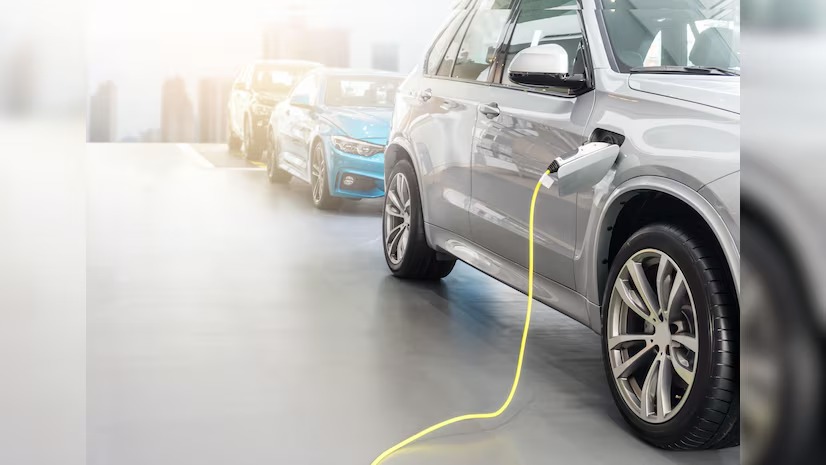
The Delhi government has announced plans to organize an ‘e-vehicle parade‘ in early October 2024, aiming to promote the adoption and use of electric vehicles (EVs) in the city. The event, to be held at Rajghat, is a part of the city’s broader initiative to combat air pollution and encourage a transition to eco-friendly transport. The environment department, tasked with organizing the parade, expects participation from over 500 electric vehicle owners. A registration link for interested EV owners will be released soon.
Event Details and Purpose
The parade is intended to boost awareness of electric vehicles, showcase their benefits, and encourage more residents of Delhi to consider making the switch to EVs. The government sees this event as a critical step toward reducing vehicular pollution, one of the primary sources of Delhi’s notorious air quality issues, particularly during the winter months.
A senior official in the environment department confirmed that a tender for organizing the event has been issued, with an estimated cost of Rs 5.76 lakh. Interested contractors have until September 30 to submit their bids, after which the parade will be conducted within five days of awarding the contract.
Encouraging EV Adoption
The parade aligns with the Delhi government’s broader efforts to encourage electric vehicle adoption. In August 2020, the government launched an EV policy that provides subsidies to buyers of electric vehicles. The policy has set an ambitious goal: by 2024, 25% of all new vehicle registrations in the city should be electric. This push towards EVs is part of a long-term strategy to decrease vehicular emissions and improve overall air quality.
As the parade date approaches, Environment Minister Gopal Rai, who recently resumed his role after a cabinet reshuffle, emphasized that combating air pollution remains a top priority for the government. He pointed out that the transition to electric vehicles is essential for reducing vehicular pollution, which contributes significantly to the city’s overall pollution levels, particularly during the winter months when air quality typically worsens.
Addressing Winter Pollution
The upcoming e-vehicle parade also coincides with Delhi’s broader efforts to reduce air pollution during the winter season, when the city’s pollution levels typically spike due to a combination of factors including vehicular emissions, industrial pollution, and stubble burning from neighboring states. Minister Gopal Rai stressed that the government is committed to tackling this challenge and has already been holding meetings with various departments to develop strategies for reducing winter pollution.
Originally scheduled for September 27, the launch of the city’s Winter Action Plan has been moved up to September 25 due to the Assembly session. The plan, according to Minister Rai, will include multiple measures aimed at curbing air pollution, particularly during the colder months when the situation tends to deteriorate. The minister expressed confidence that, through collaborative efforts with multiple stakeholders, the city’s pollution levels could be significantly reduced not only during the winter but throughout the year.
The Broader Push for Sustainable Mobility
The e-vehicle parade is part of a much larger push by the Delhi government to promote sustainable mobility solutions. Electric vehicles are seen as a key component in reducing the city’s dependency on fossil fuels and addressing the growing environmental challenges posed by air pollution.
In recent years, Delhi has made strides toward creating a more EV-friendly infrastructure. Public charging stations have been installed at various locations across the city, and the government is actively encouraging private sector participation to expand this network. Transitioning to EVs is seen as a long-term solution that will contribute significantly to lowering greenhouse gas emissions, reducing dependence on non-renewable energy sources, and ultimately helping to improve public health.
In addition to the government’s initiatives, several private companies and organizations have also been working to promote electric vehicles in Delhi. Car manufacturers have responded by launching a range of electric vehicles, while startups and other tech-driven firms are exploring innovative ways to enhance EV adoption, such as offering electric vehicle rentals and last-mile delivery services using electric vehicles.
Economic and Environmental Benefits
The potential benefits of increased electric vehicle usage in Delhi are both economic and environmental. As more consumers transition to electric vehicles, there will be a reduction in the city’s fuel consumption, which could translate into significant cost savings for individuals and the government. Furthermore, EVs emit no tailpipe emissions, reducing the harmful pollutants that contribute to respiratory illnesses and other health problems in Delhi’s population.
Moreover, the shift to EVs is expected to create new jobs and stimulate economic activity in sectors such as renewable energy, battery manufacturing, and charging infrastructure development. The Indian government at the national level has also recognized the importance of electric mobility in achieving the country’s climate goals, and Delhi’s initiatives are part of this larger effort.
Conclusion
The upcoming e-vehicle parade reflects Delhi’s commitment to promoting electric vehicles as a solution to its air pollution crisis. With more than 500 EVs expected to participate, the event is designed to raise awareness and encourage residents to make the switch to cleaner, more sustainable transportation options. As the Delhi government continues to push for electric vehicle adoption through policies, subsidies, and events like this parade, it hopes to significantly reduce air pollution, particularly during the winter months when the problem is most acute.
By transitioning to electric vehicles, Delhi aims to set a new standard for urban mobility, helping to ensure a cleaner, healthier environment for its residents while contributing to broader national and global efforts to combat climate change.
Article By
Prashant Sharma
Blog
Suzuki Access EV: A New Electric Scooter Set to Compete with the Honda Activa Electric
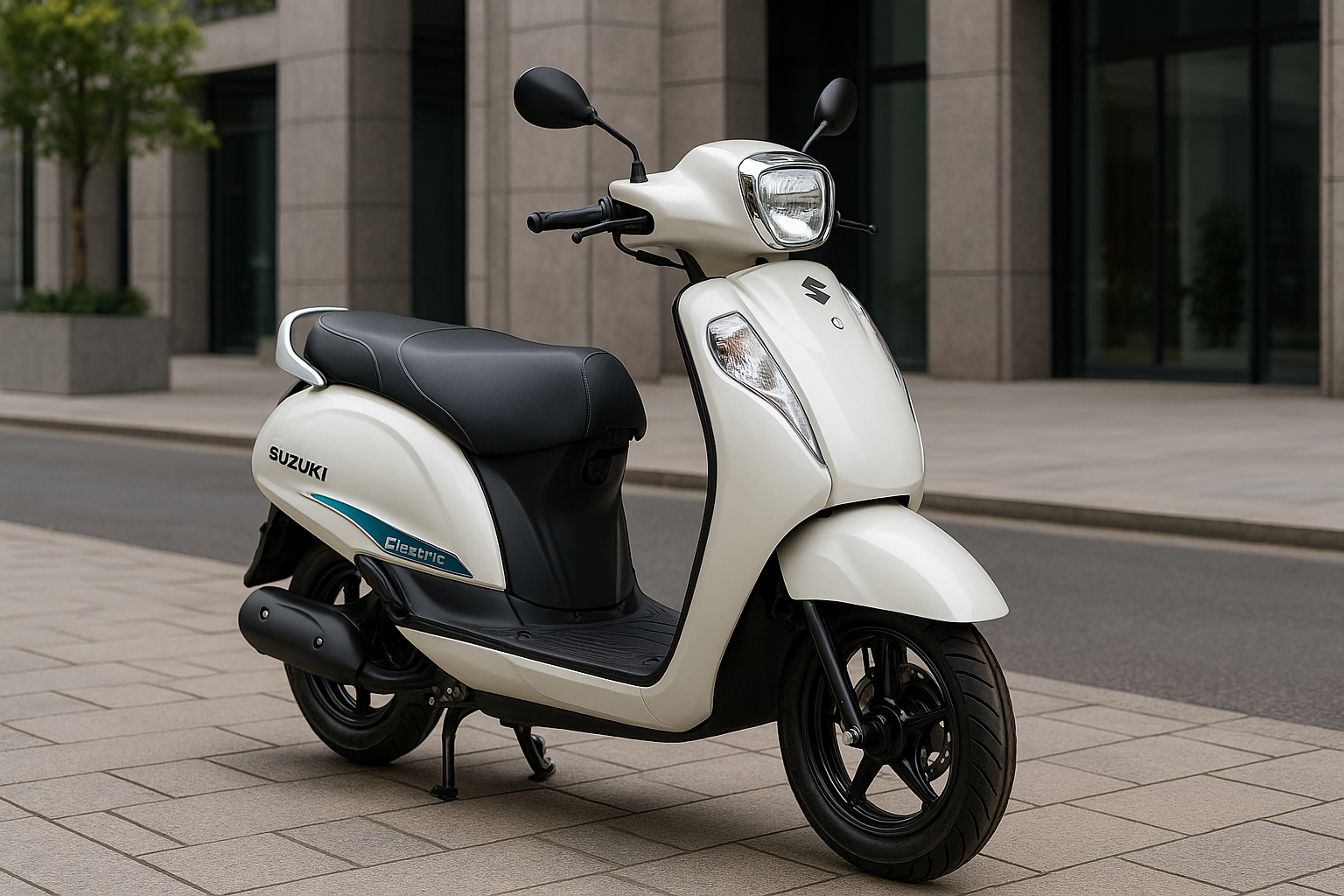
Suzuki Enters the Electric Scooter Market with the Access EV
Suzuki, a brand renowned for its reliable and fuel-efficient motorcycles and scooters, is now entering the world of electric mobility with its upcoming Suzuki Access EV. Expected to launch in 2025, this electric scooter is poised to become a significant player in India’s rapidly growing electric two-wheeler market. With the rise in demand for eco-friendly transportation, Suzuki aims to tap into the shift toward electric mobility with a scooter that combines familiarity, affordability, and modern electric technology.
India’s electric scooter market is heating up, with strong contenders like the Honda Activa Electric also making their debut. The Suzuki Access EV has big shoes to fill, but with its established reputation in the two-wheeler segment, Suzuki is well-equipped to make its mark.
Key Features of the Suzuki Access EV
1. Sleek Design and Comfort
The Suzuki Access EV will retain the classic design elements that made the Access 125 one of India’s most popular scooters, while incorporating sleek, modern changes suitable for the electric age. Expect a design that maintains the comfort and ease of use for which the Access series is known, but with enhancements to accommodate electric powertrain components.
The Access EV will come with a well-designed, comfortable seat, spacious footboard, and ergonomic riding posture, ensuring that it’s just as comfortable for long-distance commutes as it is for short city rides.
2. Battery and Range
One of the biggest concerns for any potential electric vehicle buyer is the range. The Suzuki Access EV is expected to come with a high-capacity lithium-ion battery that offers a respectable range of 80 to 100 km on a single charge. For daily city commuters, this range should be more than sufficient, offering the convenience of not needing to charge the scooter every day.
The Access EV will also feature quick charging capabilities, so riders can spend less time plugged into a charging point and more time on the road. Suzuki aims to make it as convenient as possible for users, whether they’re commuting or running errands.
3. Smart Features and Technology
In addition to its design and range, the Suzuki Access EV will come with a range of smart features to enhance the rider experience. Expect connectivity options that allow you to pair your phone with the scooter for features like real-time vehicle tracking, remote diagnostics, and battery status updates. LED lights, digital instrument clusters, and regenerative braking systems will also be part of the package, offering a smooth and high-tech riding experience.
How the Suzuki Access EV Will Compete with the Honda Activa Electric
The competition in the electric scooter segment is heating up with Honda’s Activa Electric, which is expected to launch around the same time as the Suzuki Access EV. Both brands have loyal customer bases, and their electric scooters will likely appeal to different segments of the market.
While the Honda Activa has been the undisputed leader in India’s scooter market, Suzuki brings a different set of strengths to the table. The Access EV will likely be priced competitively, giving it a strong chance of becoming a popular choice for those who want the reliability of Suzuki but are also looking for something environmentally friendly and cost-effective.
In terms of performance, both the Access EV and Activa Electric will be aiming for similar performance benchmarks, including good battery life and reliable city range. However, Suzuki’s reputation for durable scooters, combined with the added benefit of an electric motor, could give the Access EV an edge in terms of customer loyalty.
The Impact of Suzuki Access EV on the Electric Scooter Market
As the electric vehicle market in India continues to grow, the introduction of the Suzuki Access EV is a significant step forward. With government incentives for electric vehicles and growing consumer interest in eco-friendly commuting options, electric scooters are becoming a mainstream choice for many people.
The Suzuki Access EV is expected to be a game-changer in making electric scooters more accessible, affordable, and practical for the everyday commuter. By focusing on a user-friendly design, affordable pricing, and efficient battery technology, the Access EV will appeal to a wide range of customers, from those making the transition from petrol scooters to those buying their first electric vehicle.
The Future of Electric Scooters in India
The Suzuki Access EV marks a bold new step for the brand as it enters the growing world of electric mobility. With its solid reputation, affordable pricing, and smart features, the Access EV has the potential to be a strong competitor in the market alongside other popular electric scooters like the Honda Activa Electric.
As 2025 draws closer, we’ll be seeing more affordable electric options like the Access EV, which will make cleaner, greener transportation even more accessible for all. It’s an exciting time for the Indian electric vehicle market, and the Suzuki Access EV is ready to be a part of the future of eco-friendly commuting.
Blog
Hyundai Ioniq 5 Set to Challenge Kia EV9 in the Premium EV Segment
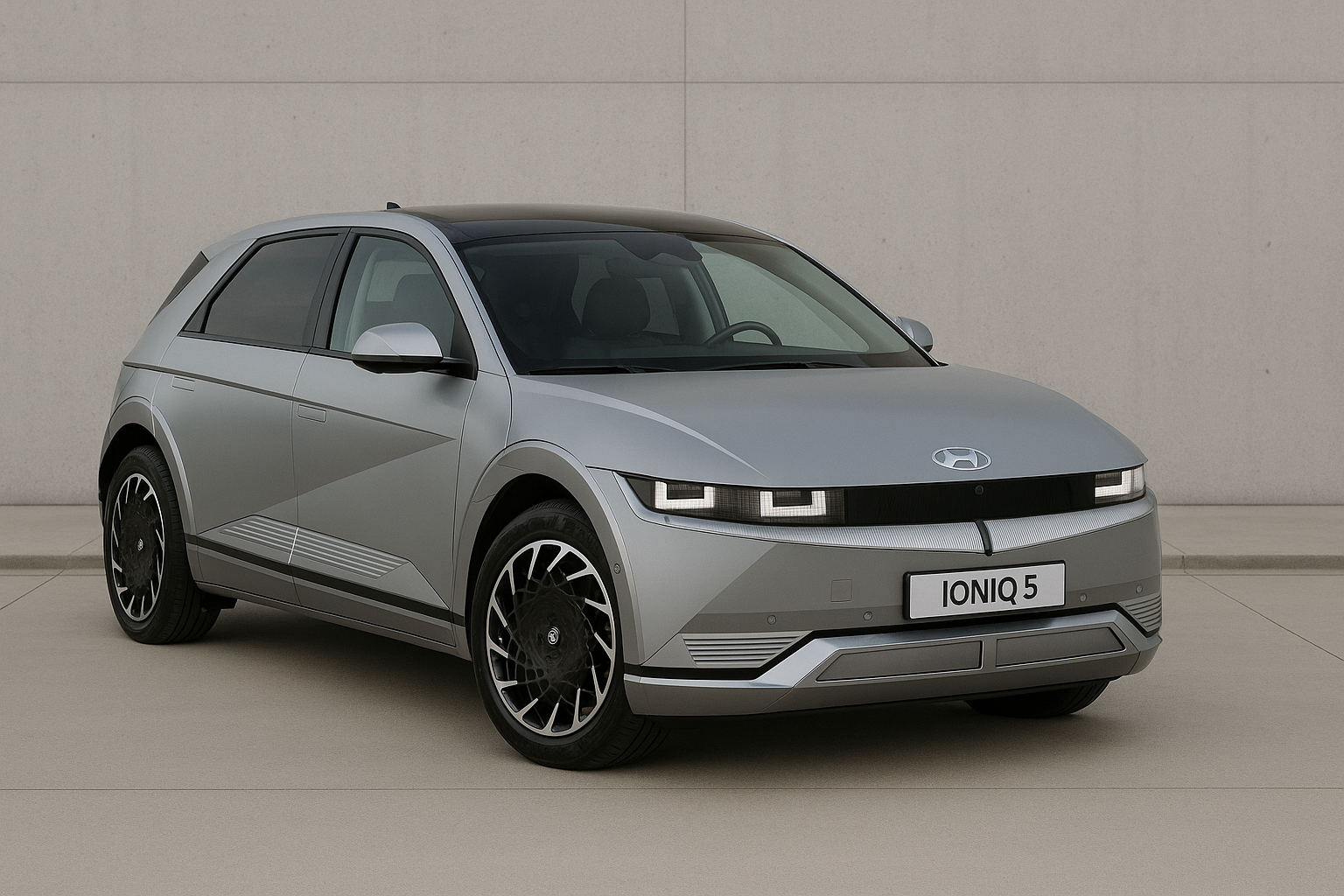
Hyundai is all set to make headlines again with the expected showcase of its flagship electric SUV — the Hyundai Ioniq 5. Designed to challenge popular models like the Kia EV9, the Ioniq 5 represents Hyundai’s commitment to futuristic, sustainable, and powerful electric mobility. With its bold design, long-range capabilities, and advanced features, the Ioniq 5 is not just an EV; it’s a statement.
A Revolutionary Step in Hyundai’s EV Journey
Hyundai has been a pioneer in bringing innovative and efficient vehicles to the market, and the Ioniq 5 is a clear reflection of that vision. Built on the E-GMP (Electric-Global Modular Platform), the Ioniq 5 offers enhanced performance, improved charging speed, and flexible interior design — ideal for modern-day EV enthusiasts.
Expected to launch with a targeted range of up to 631 km (ARAI certified) on a single charge, this electric SUV is built to go the distance, literally and figuratively. This puts it in direct competition with the Kia EV9 and other premium electric SUVs.
Futuristic Design Meets Sustainable Innovation
The Hyundai Ioniq 5 boasts a strikingly modern design that turns heads on the road. Its Parametric Pixel LED lighting, clean body lines, clamshell hood, and unique V-shaped front bumper give it a distinctive identity. The vehicle embraces both performance and aesthetics — making it a perfect blend of technology and lifestyle.
Inside, the Ioniq 5 continues to impress. The eco-friendly interior uses sustainable materials like recycled PET bottles, plant-based leather, and bio paint — all without compromising on comfort. Its flat floor architecture, flexible seating arrangement, and large cargo space make it a versatile choice for families and urban explorers alike.
Powerful Performance & Rapid Charging
Equipped with a dual-motor all-wheel-drive (AWD) system or a rear-wheel-drive (RWD) option, the Ioniq 5 can accelerate from 0 to 100 km/h in just 5.2 seconds. The power output is expected to be up to 305 PS depending on the variant.
One of the most impressive features is its ultra-fast 800V charging system. The Ioniq 5 can charge from 10% to 80% in just 18 minutes with a 350 kW DC fast charger. Even with a regular 50 kW charger, it offers excellent efficiency — ideal for Indian conditions where charging infrastructure is expanding rapidly.
A Smart and Connected Experience
The Ioniq 5 will come loaded with smart features like:
- Hyundai SmartSense ADAS (Advanced Driver Assistance Systems)
- 12.3-inch digital instrument cluster & infotainment display
- Augmented reality heads-up display
- Vehicle-to-Load (V2L) functionality to power external devices
Hyundai is likely to offer Over-the-Air (OTA) software updates, connected car services via Bluelink, and a top-tier warranty package to boost consumer confidence in EV ownership.
Why It’s Worth the Wait
As India moves towards electric mobility, vehicles like the Hyundai Ioniq 5 are setting benchmarks in performance, range, and sustainability. While pricing is yet to be officially confirmed, Hyundai is expected to price it competitively — making it an attractive alternative to the Kia EV9, Tesla Model Y, and Volvo XC40 Recharge.
Whether you’re an EV enthusiast or a future-forward buyer looking for style, performance, and green innovation, the Hyundai Ioniq 5 promises to deliver on all fronts.
Article By
Sourabh Gupta
Ev battery
Mahindra Expands EV Portfolio with the BE 07: A New Era of Electric Mobility
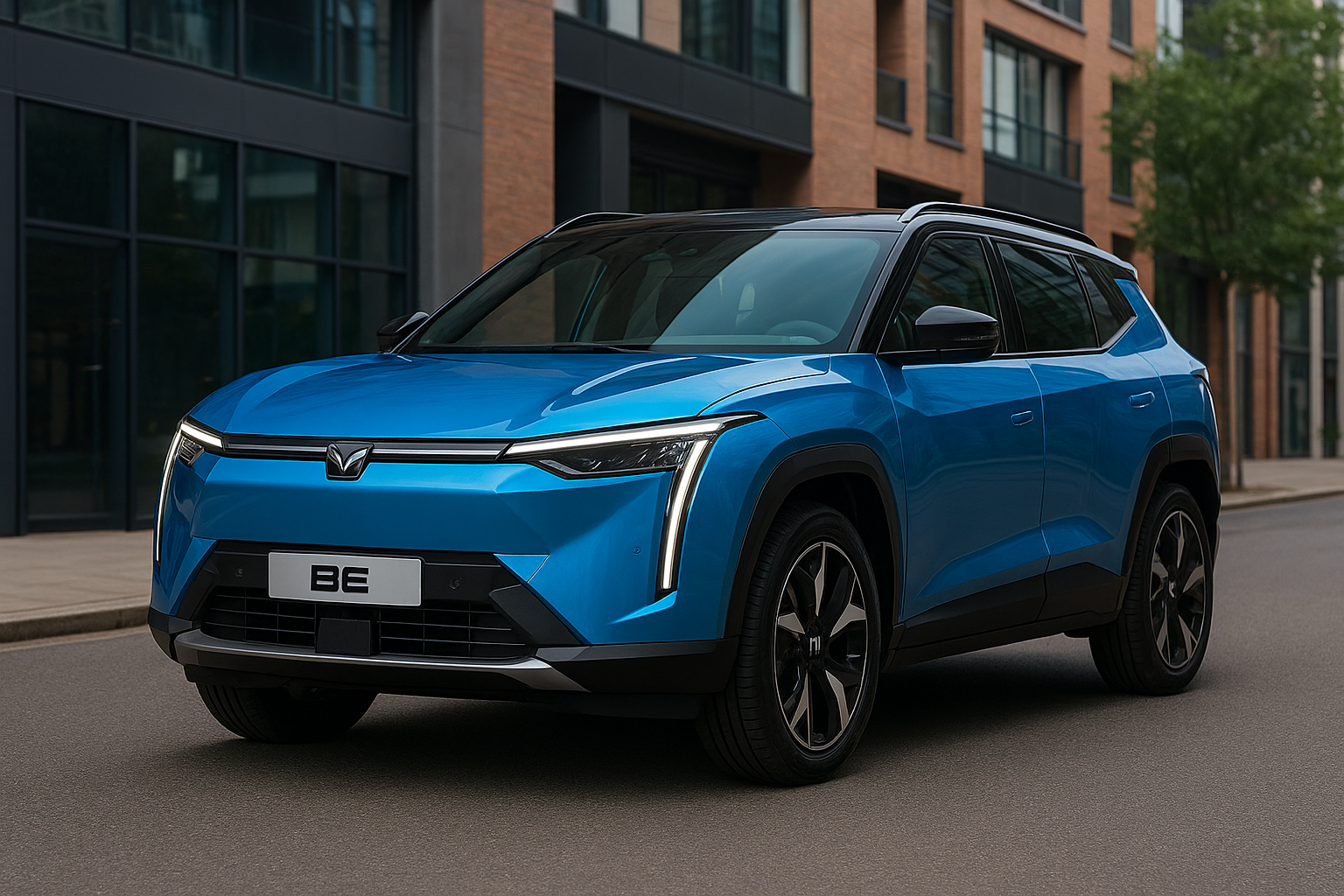
Mahindra’s New Electric SUV: The BE 07 is Here to Make a Splash
Mahindra’s been making some big moves lately, and if you’re a fan of SUVs, you’re going to want to pay attention. The BE 07, Mahindra’s upcoming electric SUV, is creating a lot of buzz in the auto world. Expected to roll out in 2025 or 2026, this electric ride is set to change how we think about electric vehicles (EVs) in India.
We all know Mahindra is famous for its tough, reliable SUVs. The BE 07 will be no different, but it’s got a twist — it’s electric. So, whether you’re looking for an eco-friendly car that still packs a punch or you’re just tired of rising fuel prices, this electric SUV might be exactly what you’ve been waiting for.
Why the BE 07 is Such a Big Deal
The BE 07 is more than just a regular SUV — it’s electric, which means it’s a step forward in Mahindra’s push to make green vehicles the norm. Here’s why people are so excited about it:
1. A Fresh, Modern Look
We all know Mahindra is famous for making rugged SUVs, and the BE 07 keeps that vibe alive. But it’s also got a more modern look that screams future-ready. With sleek lines and a sporty design, it’s got that futuristic appeal, but with all the muscle you’d expect from an SUV.
Whether you’re using it for city drives or heading out on a road trip, the BE 07 will stand out wherever you go.
2. Great Range for Long Drives
One of the things people are most worried about with electric cars is range anxiety — basically, how far can you go before needing a charge? Mahindra is addressing this with the BE 07, which is expected to give you a solid 400+ km on a full charge. That means you can take it on longer trips without the stress of constantly needing to find a charging station. Whether it’s a weekend getaway or a daily commute, this car’s range is more than enough.
And with fast-charging capabilities, you won’t be stuck waiting hours for a charge. Quick and efficient charging will make long drives a breeze.
Tech and Features: It’s Got Everything You Need
Electric cars are all about smart technology, and the BE 07 delivers. The car comes with all the modern features you’d expect from a high-end SUV, but with an electric twist. Expect a huge touchscreen infotainment system, smart connectivity, and advanced driver-assistance features to make your driving experience as smooth as possible.
3. Smart Features for a Smooth Drive
If you’re someone who loves having the latest gadgets in your car, the BE 07 will make you happy. It’ll have features like adaptive cruise control, lane-keeping assist, and emergency braking. These features not only make driving safer but also less stressful, especially on highways or during long drives.
The infotainment system will keep you connected to your music, calls, and navigation, so you’re never without what you need. Plus, all of this tech will be integrated into the car seamlessly, keeping everything easy to use.
Why It’s the Right Time for an Electric SUV
If you’ve been thinking about switching to electric, the BE 07 might just be the right moment. As fuel prices continue to climb, the cost of petrol and diesel is hitting us hard. But with electric vehicles, you’re looking at a much cheaper, more sustainable way to drive.
Plus, government incentives are making it easier than ever to buy an electric car. With affordable pricing and low charging costs, the BE 07 makes going green more accessible than ever before.
Who’s the BE 07 Perfect For?
This car is perfect for families, young professionals, or adventure lovers who want a car that’s tough, eco-friendly, and packed with features. If you love the idea of owning an electric SUV that’s both stylish and practical, the BE 07 is going to be a great fit. It’s spacious enough for your family, but with the kind of performance and luxury that will make every drive a pleasure.
What’s Next for Mahindra?
The BE 07 is just one of the many electric cars Mahindra plans to release. As the company continues to expand its EV portfolio, we can expect even more exciting models in the coming years. The BE 07 is just the beginning of Mahindra’s mission to revolutionize the electric vehicle market in India.
With Mahindra’s growing focus on electric mobility, the future of sustainable transportation in India is looking brighter every day. So, if you’ve been considering switching to an electric car, the BE 07 is worth keeping an eye on.
The Future of Driving Is Electric
The Mahindra BE 07 is shaping up to be an exciting, affordable, and eco-friendly option for anyone looking for an electric SUV. With great design, amazing tech, and a reliable range, it’s clear that Mahindra is stepping up its game when it comes to electric mobility.
If you’ve been thinking about making the switch to electric, the BE 07 could be the perfect vehicle for you. It’s affordable, practical, and it’s got everything you need to drive into a more sustainable future.
Article By
Sourabh Gupta
-
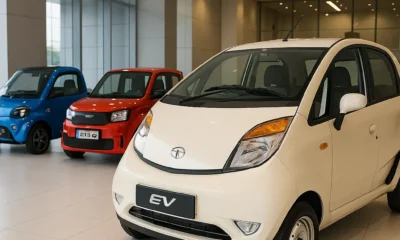
 Blog4 months ago
Blog4 months agoTop Electric Cars in India Under ₹5 Lakhs – Budget-Friendly EVs for Diwali 2025
-
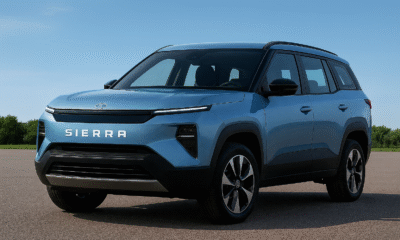
 Blog5 months ago
Blog5 months agoTata Sierra EV 2025 Launch: Price in India, Specifications & First Look
-
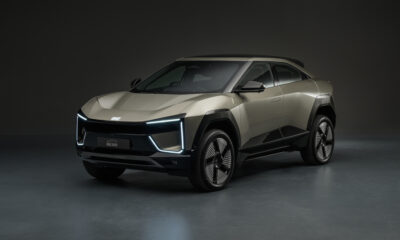
 Blog1 year ago
Blog1 year agoMahindra BE 6 An Intense Move toward the Fate of Electric Versatility
-
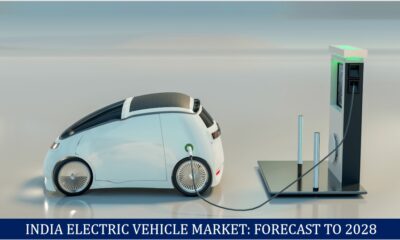
 Blog1 year ago
Blog1 year agoIndia’s Electric Vehicle Market Forecast to 2028 A Rapidly Growing Industry
-
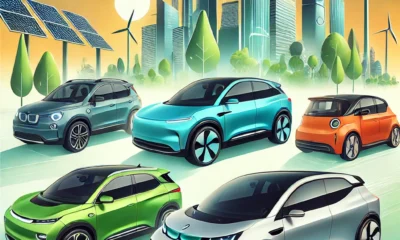
 Blog2 years ago
Blog2 years agoTop 5 best electric vehicles Under $30,000: Affordable Choices for 2024
-
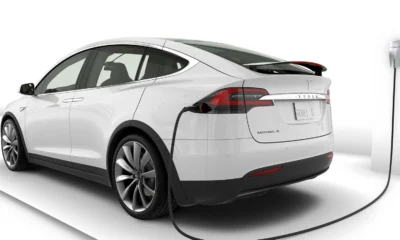
 Blog2 years ago
Blog2 years agoTop 10 Electric Vehicles of 2024: A Comprehensive Guide
-
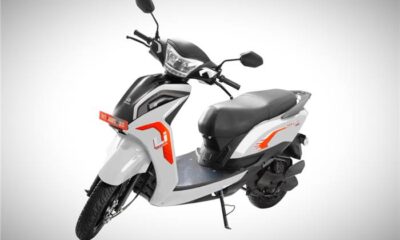
 EV news1 year ago
EV news1 year agoAmpere Magnus Neo Another Time of Electric Portability
-
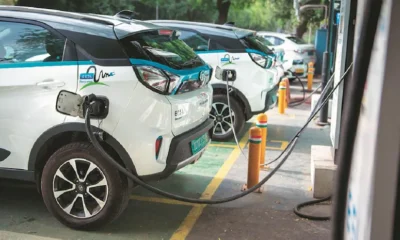
 EV news1 year ago
EV news1 year agoIndia’s EV Revolution Electric Cars to Outpace Petrol & Diesel in 2025




